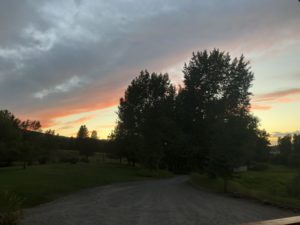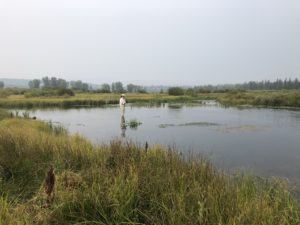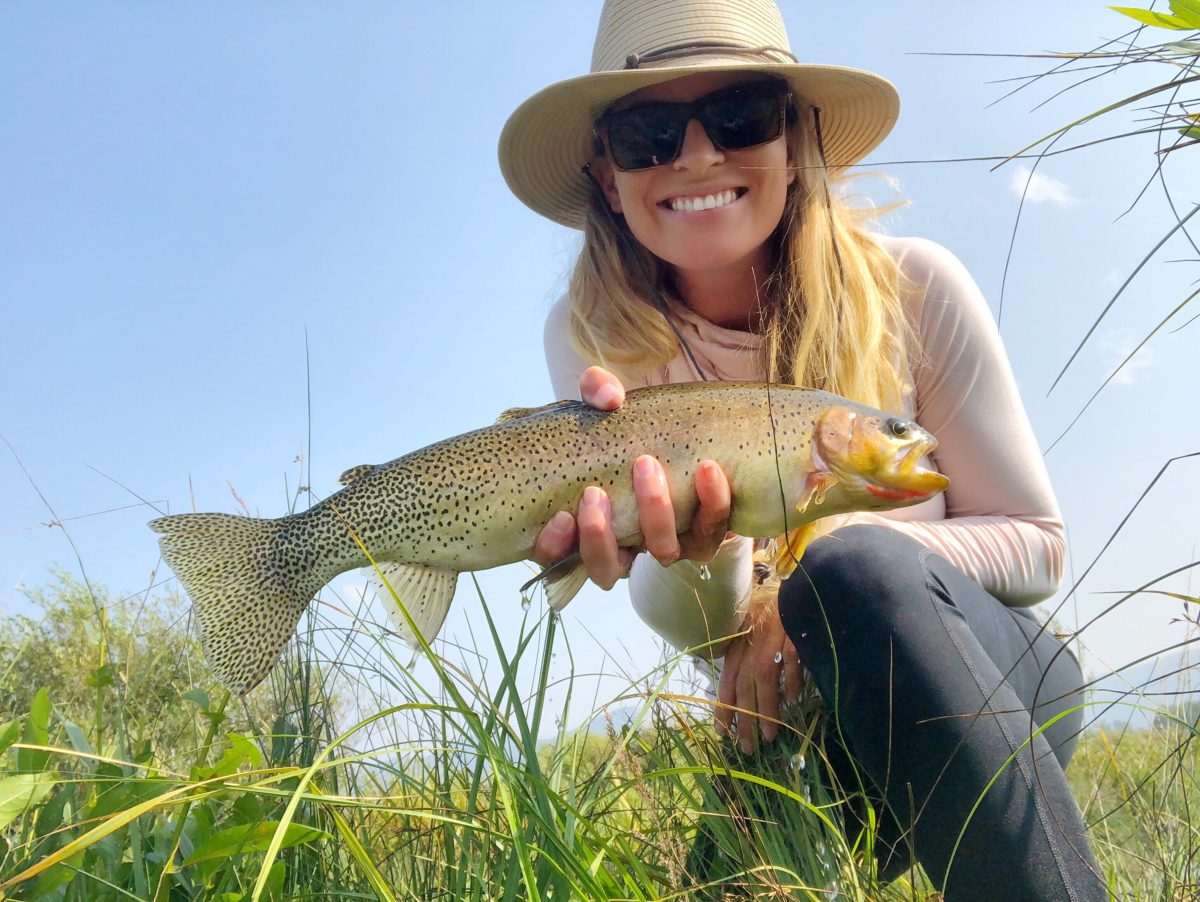Living in South Florida, I’m primarily a saltwater fly angler. It’s mostly because of the convenience of having Biscayne Bay and the Keys in my backyard, and I’ve come to love that game, despite growing up primarily freshwater fishing in New England. There is something extraordinary about standing on the bow of a skiff scanning the water for tails breaking the surface, or the slightest flicker of motion or color change betraying a fish camouflaged in the grass. You have to think quickly, present the fly quickly, and react and interact with the fish quickly to be successful in salt water.
 Despite it being my true love in fly fishing, I try to venture back into fresh water as often as I can each year. It is a completely different game, and I appreciate it more now that I am away from it so often. It always takes me a bit to adjust back to the pace of trout fishing. I recently found myself on a perfect little spring creek in Montana and got a cruel reminder of how different trout fishing is. At first, I wasn’t stealthy enough and spooked a few fish that were happily feeding above me because I didn’t crouch low enough as I approached. I soon came to another bend and saw a large fish feeding, and instead of waiting and watching for a minute, I tried to quickly catch it, casting over another fish I hadn’t seen in the process and sending both fish fleeing in different directions. Several times I had fish rise to my fly, only to set too fast with more of a strip set, pulling the fly from their open mouths.
Despite it being my true love in fly fishing, I try to venture back into fresh water as often as I can each year. It is a completely different game, and I appreciate it more now that I am away from it so often. It always takes me a bit to adjust back to the pace of trout fishing. I recently found myself on a perfect little spring creek in Montana and got a cruel reminder of how different trout fishing is. At first, I wasn’t stealthy enough and spooked a few fish that were happily feeding above me because I didn’t crouch low enough as I approached. I soon came to another bend and saw a large fish feeding, and instead of waiting and watching for a minute, I tried to quickly catch it, casting over another fish I hadn’t seen in the process and sending both fish fleeing in different directions. Several times I had fish rise to my fly, only to set too fast with more of a strip set, pulling the fly from their open mouths.
 Frustrated, I reminded myself that these fish weren’t going anywhere. They weren’t consistently on the move like a permit typically is, and I didn’t need to get a fly in front of them with any urgency. They were happily feeding on the same line, opportunistically rising to any tasty-looking morsel that happened to float downstream. There is something very soothing and meditative about trout fishing, especially when you’re used to the fast-paced nature of saltwater. You can slow down, and observe, and change flies four or five or more times before you finally convince that big fish to slowly rise and eat your fly. You have time to read the water, to see what the fish are eating, to observe the bugs in the air and the eagle eyeing you from the tree above. And though I will likely spend far more of my future fishing days in the salt, I have come to cherish and appreciate my time fishing freshwater more than I ever did when it was right in my backyard.
Frustrated, I reminded myself that these fish weren’t going anywhere. They weren’t consistently on the move like a permit typically is, and I didn’t need to get a fly in front of them with any urgency. They were happily feeding on the same line, opportunistically rising to any tasty-looking morsel that happened to float downstream. There is something very soothing and meditative about trout fishing, especially when you’re used to the fast-paced nature of saltwater. You can slow down, and observe, and change flies four or five or more times before you finally convince that big fish to slowly rise and eat your fly. You have time to read the water, to see what the fish are eating, to observe the bugs in the air and the eagle eyeing you from the tree above. And though I will likely spend far more of my future fishing days in the salt, I have come to cherish and appreciate my time fishing freshwater more than I ever did when it was right in my backyard.


